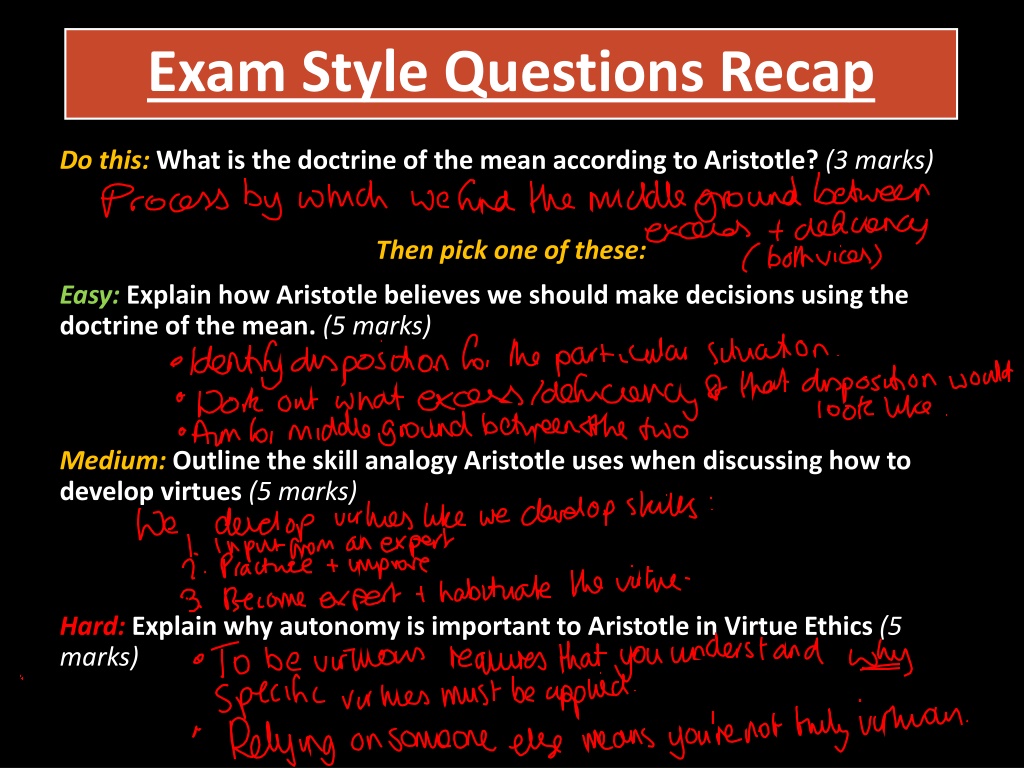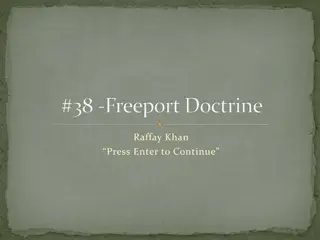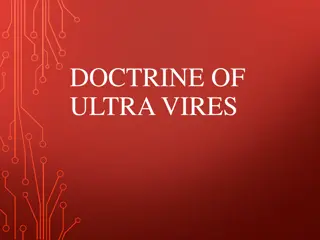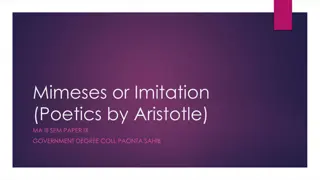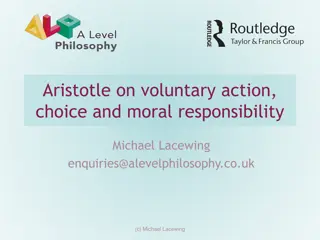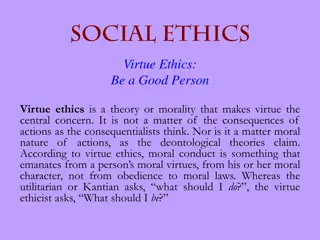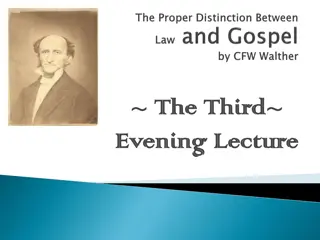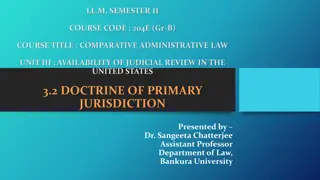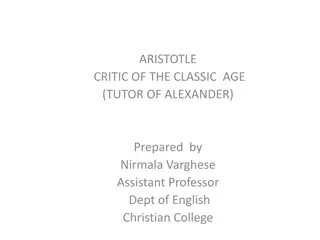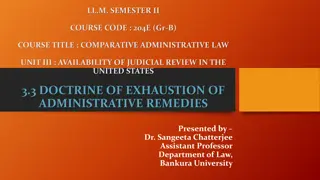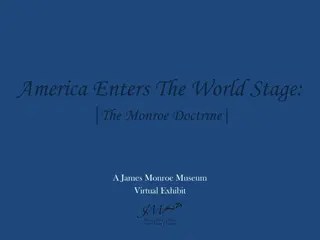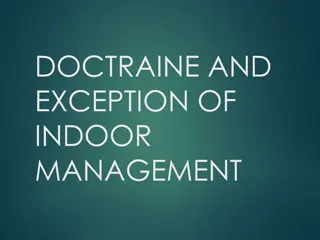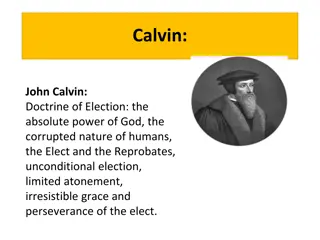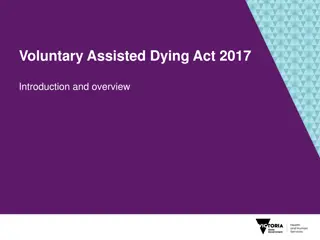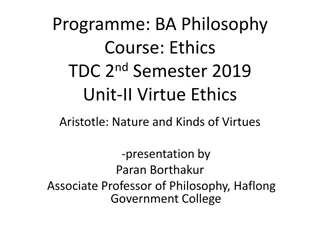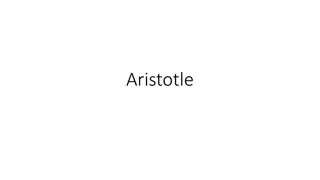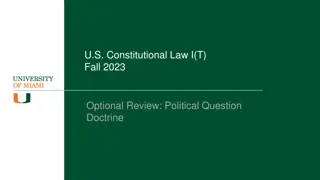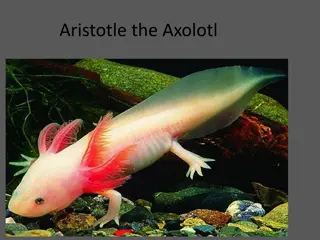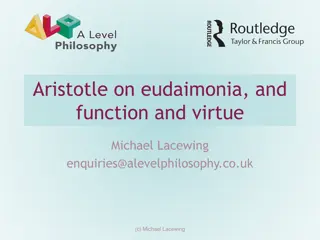Understanding Aristotle's Doctrine of the Mean and Voluntary Actions
Explore Aristotle's doctrine of the mean, the skill analogy used in developing virtues, the importance of autonomy in virtue ethics, and the distinction between voluntary and involuntary actions in moral responsibility as discussed in his Nicomachean Ethics.
Download Presentation

Please find below an Image/Link to download the presentation.
The content on the website is provided AS IS for your information and personal use only. It may not be sold, licensed, or shared on other websites without obtaining consent from the author. Download presentation by click this link. If you encounter any issues during the download, it is possible that the publisher has removed the file from their server.
E N D
Presentation Transcript
Exam Style Questions Recap Do this: What is the doctrine of the mean according to Aristotle? (3 marks) Then pick one of these: Easy: Explain how Aristotle believes we should make decisions using the doctrine of the mean. (5 marks) Medium: Outline the skill analogy Aristotle uses when discussing how to develop virtues (5 marks) Hard: Explain why autonomy is important to Aristotle in Virtue Ethics (5 marks)
Summary of Last Lesson(s) Thus the moral virtues are: Dispositions of character (involving feelings and actions) Acquired by ethical training and practice (habituation) Developed through a process not unlike skills (skill analogy) Half way between the vice of excess and vice of deficiency (Golden Mean) And enable the virtuous person and society to flourish (Eudaimonia) Meaning someone who is virtuous is someone who: Has learnt through habituation to do virtuous acts. Recognises what the appropriate virtue to apply is. Enjoys doing virtuous acts. Has a history of doing virtuous acts. Has no internal conflict about acting virtuously. Chooses consciously to act virtuously whenever possible.
In each case, is the person responsible for their action? Should they be punished or pardoned for the loss of the gold? What is the key difference between the three types of act?
Voluntary and involuntary actions and moral responsibility Or: Which actions should we judge someone for when deciding whether or not they are virtuous?
Voluntary / Involuntary Actions The question we may now ask is which of our actions should we be held responsible for (and therefore count as examples of being virtuous)? 1. How might we identify whether or not someone should be held responsible for their actions? 2. Can you give an example of someone who should be held responsible, and someone who shouldn t?
Voluntary / Involuntary Actions In Book 3 of his Nicomachean Ethics Aristotle asserts that people can be praised and blamed for voluntary acts but not for acts done contrary to intention (i.e. those that are involuntary). What we intended to do reveals our dispositions and desires, and thus our moral character. Things that are unintended meanwhile, reveal nothing about our particular character. Intended act: An act caused by something within us. In other words when there is a clear line we can trace between our decision-making process and the action itself in the world. Not carried out in ignorance or due to some external factor.
Jims Story Jim is a man down on his luck looking for work at a local dockyard. It just so happens there is a merchant ship leaving soon for America who are looking for crew. Jim decides to join up. Would we say Jim s action is voluntary? Why?
Jims Story 2 Whilst sailing for America, the ship is caught in a terrible storm. The ship is blown far off course and the crew is no longer able to deliver their goods on time. What would we say about Jim s situation (as a member of the crew) in this case?
Jims Story 3 Unfortunately the storm gets worse and worse. Jim makes the decision to start throwing some of the cargo overboard in an effort to make the ship lighter and avoid sinking. Was Jim acting voluntarily here? Why?
Jims Story 4 One of the boxes that Jim threw overboard happened to contain some extremely valuable (yet heavy) gold statues. Jim was unaware of this as it was not on the ships manifest. Yet when told he doesn t regret the action. It was pulling the ship down! What can we say about Jim s action here? Why?
4 Different Types of Action 2. The second example is simple, Jim had no choice in his actions. Despite what he (and the rest of the crew may have wanted) they have ended up miles from their intended course, their action is definitely involuntary. 1. In our first example, Aristotle would argue that Jim s actions are voluntary. This is because he made the internal decision to take the job on the ship, and this was reflected in his actions. 3. In our third example we might say that Jim is acting in a mixed way (both involuntarily and voluntarily). It was never his long-term intention to dump the cargo, but unfortunately the origin of the action did lie within him, as he made the decision in order to save their lives. 4. Aristotle classes this action as non-voluntary, whilst Jim was ignorant of all the facts when he carried the action out, he doesn t regret doing it. This seems to show that had Jim known about the statues, he still would have thrown the box overboard.
4 Types of Action Voluntary actions In line with our intentions Involuntary actions Contrary to our intentions, either through compulsion (force) or ignorance (where you didn t know all the facts and now regret your action). Mixed actions Both intended and unintended. The origin of the action is within you but it is contrary to your intentions. Aristotle argues these actions are more voluntary than involuntary. Non-voluntary act Something you did in ignorance of all the facts but do not regret, suggesting you probably would have done it anyway. It is this last category we need to look at in more details.
Non-Voluntary and Involuntary Actions Aristotle argues that involuntary actions are actions carried out due to force (someone made you) or ignorance (you didn t know the full facts of the situation). Either the original decision within you to act was prevented or corrupted somehow. But was Jim truly acting in an involuntary way in this final case? Surely he would have done it even if he d known the boxes had valuable statues in?
Non-Voluntary and Involuntary Actions The Difference It s here Aristotle distinguishes between those actions that are involuntary due to ignorance, and those that are non- voluntary due to ignorance. The difference between non-voluntary and involuntary acts lies in whether or not you regret your action. If you do, we can say you would have done otherwise given all the information, therefore your action was involuntary. It was contrary to your intention. If you do not regret your action, this is as good as saying you probably would have done it regardless of the extra knowledge, so we can say it s non-voluntary. You didn t know all the facts (so not truly voluntary), but you would have done it anyway if you did.
What type of actions would these be? 1. Someone holding a gun to your head and making you give them your internet password. 2. You going to the shop at lunchtime to get food. 3. You accidentally triggering your friends nut allergy by buying him a chocolate bar. 4. Crashing your car in order to avoid running over a small child. 5. Destroying a priceless piece of clothing to smother a fire. You didn t know the clothing was priceless.
4 Types of Action Voluntary actions In line with our intentions Involuntary actions Contrary to our intentions, either thrown compulsion (force) or ignorance (where you didn t know all the facts and now regret your action). Mixed actions Both intended and unintended. The origin of the action is within you but it is contrary to your intentions. Aristotle argues these actions are more voluntary than involuntary. Non-voluntary act Something you did in ignorance of all the facts but do not regret, suggesting you probably would have done it anyway. In which of these actions would you consider the agent to be morally responsible? Why?
Voluntary actions in line with our intentions. Involuntary actions contrary to our intentions (through compulsion or ignorance). Mixed actions Both intended and unintended. The origin of the action is within you but it is contrary to your intentions. Non-voluntary act Something you did in ignorance of all the facts but do not regret.
Putting it all together - Task: Read through the flow chart on page 327 to check your understanding of the different types of action. Make sure you have an example of each type in your notes use the examples of Jim if you wish. Why do you think this discussion of action is important to Aristotle s ethics?
Why is this all important? Well Aristotle argues that if we wish to judge whether someone is acting virtuously or not we need to know whether they are acting in the way in which they intended. Since we only seem to act according to intentions in those actions we deem voluntary, non-voluntary or mixed these are the only times when we can decide if someone is acting in a virtuous way. Involuntary acts tell us nothing. In those situations that are mixed or non-voluntary we also may need to take into account the circumstances of the action. Thus Jim taking the merchant ship and throwing the goods (including the statues) overboard tell us something about his character and his virtues. The crew and Jim ending up miles off course tell us nothing about him.
2 Things Youve Learned Today 2 Things You ve Learned Today
Homework Homework Go through the handout over the weekend. Add in any annotations you feel need adding and illustrate any key points you think might need illustrations. If you are unsure of anything either add a question mark or make a note of it, we will use these as a starting point for the topic recap next week. Otherwise use it as chance to revise virtue ethics.
